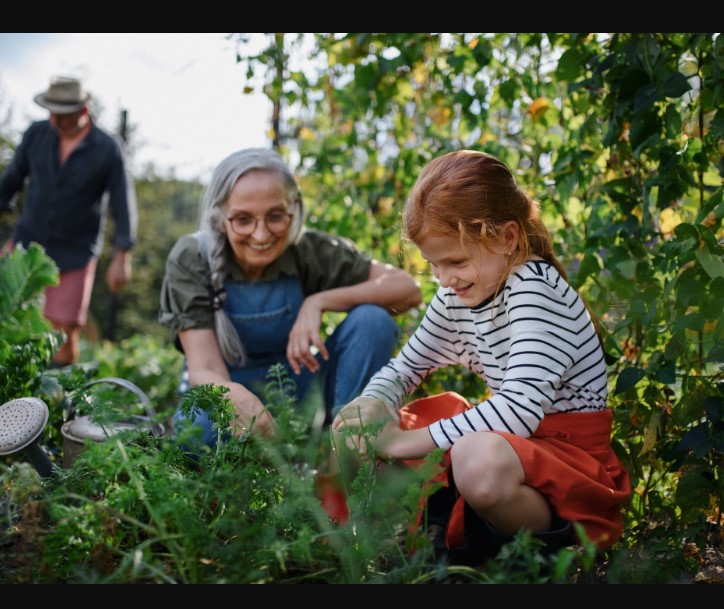In an era of peak environmental consciousness, sustainable gardening practices have emerged as a beacon of hope for nurturing the planet while enjoying the beauty of nature. These practices not only promote biodiversity and conservation but also offer a myriad of benefits for both gardeners and the environment. In this comprehensive guide, we delve deep into sustainable gardening, exploring techniques, principles, and their profound impact on our world.
Understanding Sustainable Gardening:
Sustainable gardening transcends mere cultivation; it embodies a philosophy of environmental stewardship and ecological balance. Sustainable gardening seeks to minimize negative environmental impacts, conserve resources, and foster resilient ecosystems. It emphasizes harmony with nature, employing techniques that mimic natural processes to create thriving, self-sustaining landscapes.
Key Principles of Sustainable Gardening:
Biodiversity Conservation:
- Sustainable gardens prioritize biodiversity, recognizing the intrinsic value of diverse plant and animal species.
- By incorporating native plants, creating habitat structures, and avoiding chemical pesticides, gardeners can attract and support various beneficial organisms, from pollinators to predators.
Soil Health Enhancement:
- Healthy soil is the foundation of a sustainable garden, teeming with life and rich in nutrients.
- Practices such as composting, mulching, and minimal soil disturbance help improve soil structure, fertility, and water retention. These improve conditions for plant growth while reducing erosion and nutrient runoff.
Water Conservation:
- Water scarcity poses a significant challenge to gardeners, particularly in arid regions or during drought.
- Sustainable gardening techniques such as rainwater harvesting, drip irrigation, and xeriscaping minimize water usage, promoting efficient water distribution and retention in the landscape.
Chemical-Free Pest Management:
- Traditional pest control methods often rely on chemical pesticides, which can harm non-target organisms and disrupt ecological balance.
- Sustainable gardeners employ integrated pest management (IPM) strategies, combining biological controls, cultural practices, and mechanical barriers to manage pests while minimizing environmental impact.
Implementing Sustainable Gardening Practices:
Native Plant Selection:
- Native plants are adapted to local environmental conditions, requiring less water, fertilizer, and maintenance than exotic species.
- By choosing native plants for their gardens, individuals can create resilient ecosystems that support local wildlife and conserve water resources.
Permaculture Design:
- Permaculture principles guide the design of sustainable gardens, emphasizing holistic planning, resource efficiency, and ecosystem mimicry.
- Techniques such as companion planting, food forests, and swales maximize productivity while minimizing inputs and waste.
Organic Soil Management:
- Building healthy soil is essential for sustainable gardening success, with organic matter being the cornerstone of soil fertility.
- Gardeners can enrich their soil through composting, cover cropping, and crop rotation, fostering a thriving soil food web that sustains plant health and vitality.
Water-Efficient Irrigation:
- Water scarcity underscores the importance of efficient irrigation practices in sustainable gardening.
- Various water-saving technologies and techniques are available to help gardeners optimize water usage and minimize waste, from drip irrigation systems to rainwater harvesting barrels.
The Benefits of Sustainable Gardening:
Environmental Benefits:
- Sustainable gardening practices mitigate environmental degradation, conserve water, reduce chemical pollution, and promote habitat restoration.
- Sustainable gardens play a vital role in mitigating climate change and preserving ecosystem integrity by fostering biodiversity and sequestering carbon.
Health and Well-being:
- Sustainable gardening promotes physical activity, reduces stress, and enhances mental well-being.
- Consuming homegrown organic produce contributes to a nutritious diet, free from harmful pesticides and chemicals, thereby supporting overall health and vitality.
Community Engagement:
- Sustainable gardening fosters community connections, providing opportunities for education, collaboration, and shared stewardship of the environment.
- Community gardens, urban farms, and local food initiatives promote social cohesion and empower individuals to participate in the sustainable food movement.
Conclusion:
In conclusion, sustainable gardening offers a holistic approach to cultivating beauty, abundance, and resilience in our landscapes. By embracing biodiversity, soil health, water conservation, and ecological stewardship principles, gardeners can play a transformative role in building a more sustainable future. As we cultivate our gardens, let us also sow the seeds of sustainability, nurturing the planet and generations with care, compassion, and reverence for all living beings.

